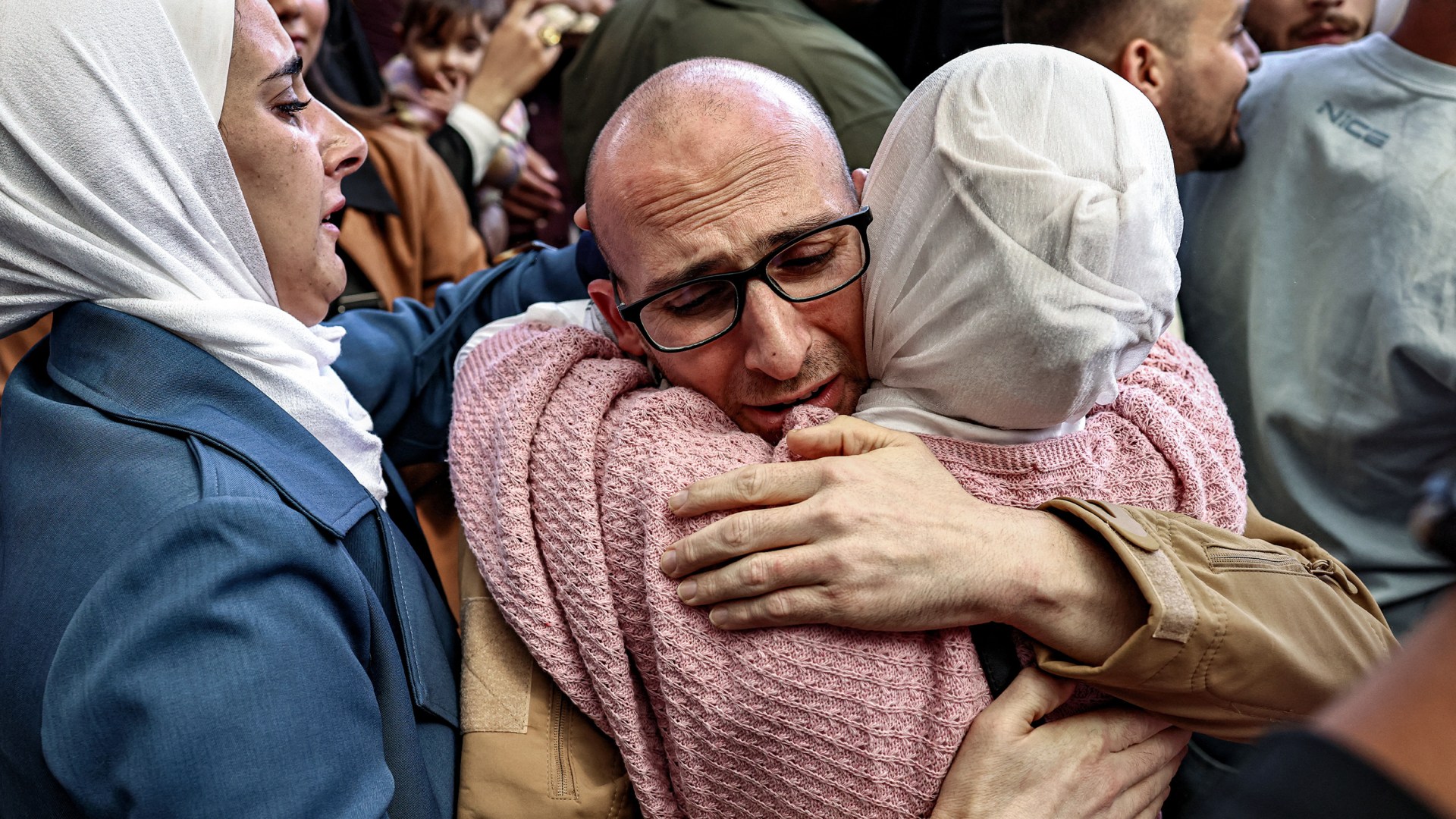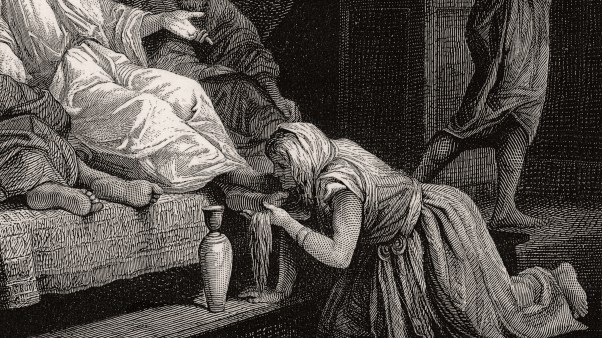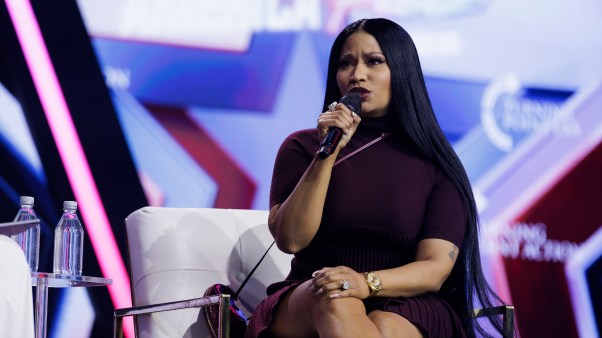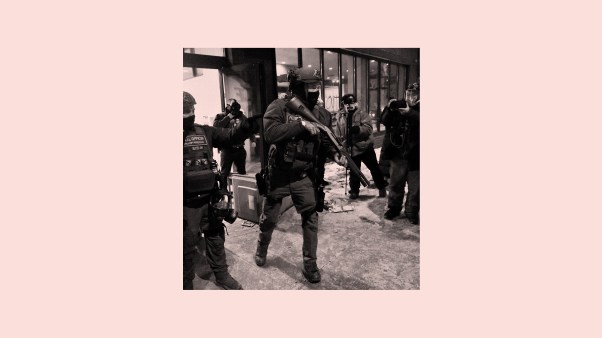To get from her home in Bethlehem to her college and workplace in Abu Dis, east of Jerusalem, Christine Awad had to pass through the only Israeli checkpoint connecting the northern and southern parts of the West Bank. Without this barrier and the traffic it forms, the drive would take 20 minutes. With it and the increased restrictions after the October 7, 2023, attack on Israel by Hamas-led militants, Awad’s commute every morning and evening until the end of her employment in June could stretch into a two-hour journey.
Every time she reached the checkpoint—one of the West Bank’s 849 checkpoints, road gates, and obstacles—Israeli soldiers climbed onto the bus. Sometimes they checked passenger IDs. Other times they demanded riders hand over unlocked phones and searched their contacts, messages, and photos. Sometimes they ordered commuters to get off the bus to undergo further inspection. Once a female friend of Awad’s was taken inside a booth and strip searched.
“You have no agency,” Awad, a Palestinian Christian, said of these interactions. “You can’t say no. You can’t refuse.”
Awad, now a graduate student at Bethlehem University, described passing through checkpoints as both scary and normal. The daughter of a Presbyterian pastor, Awad has lived her whole life under Israeli occupation—a term used to describe Israel’s military control of the West Bank, East Jerusalem, and Gaza, areas that would constitute a future Palestinian state.
The reality of the occupation colors Awad’s view of last week’s cease-fire between Israel and Hamas. Like millions in the region, she felt relief. On Monday, Hamas returned the remaining 20 living Israeli hostages, whom the terrorist organization had held captive for 738 days. Later, Israel released around 2,000 Palestinians from prison—250 convicted of terrorism and murder and the rest detained without charges during the war.
As the Israeli hostages returned home, US president Donald Trump delivered a triumphant speech in Israel’s Parliament, the Knesset, declaring the deal would usher in “the historic dawn of a new Middle East.” Trump then went to Sharm el-Sheikh, Egypt, where he and Egyptian president Abdel Fattah el-Sisi co-led a peace summit that more than 20 other world leaders attended. Alongside the US and Egypt, fellow mediators Qatar and Türkiye signed a document backing the cease-fire agreement and committing to an “enduring peace” in the region.
Yet Awad expressed skepticism about whether this agreement will result in lasting peace. Both the four-day truce in November 2023 and the cease-fire that began January 19, 2025, devolved into further bombing and bloodshed.
And though often overshadowed by the Gaza war, the situation in the West Bank has worsened drastically the last two years, with Human Rights Watch reporting increased movement restrictions for Palestinians, settler violence, Palestinian-home demolitions, and an uptick in settlement building. Historically Christian areas like al-Makhrour and Taybeh have been targets of settler violence and attempts to dispossess Palestinians of their land.
“I think now justice is more the concern before peace can happen,” Awad said.
From Beit Hanina, a Palestinian neighborhood in East Jerusalem, Simon Azazian shared similar feelings. He is grateful the cease-fire will bring relief to Gazans’ suffering—some of which he has observed firsthand as assistant pastor of Alliance Church in the Holy Land, nestled within the walls of Jerusalem’s Old City.
Since October 7, 2023, church members have visited Muslim Gazan cancer patients stuck in Jerusalem and have built friendships with 100 orphans transported to Bethlehem from a Gaza-based SOS village that supported children lacking parental care.
Twice in 2024, the congregation funded street kitchens inside Gaza where hungry families could receive a hot meal. After these events, Azazian said, around 30 individuals contacted the church through its Facebook page, expressing interest in following Christ.
Though he’s glad Gazans will get some respite in the coming days, Azazian is also concerned about the cease-fire deal. “We’ll have a few years … of peace, but things will happen again, and wars will erupt because the issue isn’t solved from its roots,” he said. “And the root here is the end of the Israeli occupation. That has to happen one way or another. We must give the Palestinians justice.”
Awad’s daily life in Bethlehem illustrates some of the justice issues created by Israel’s military control of Palestinian territories. The more than 3 million residents of West Bank—including Awad’s family—face water scarcity as Israel diverts more water to Jerusalem and Jewish settlements than to the homes of Palestinian residents. On average, Israelis consume around 300 liters of water daily, while Palestinians consume only 73 liters, according to a 2017 Amnesty International report.
Though Palestinian ID cards are granted by the Palestinian Authority, Israel must approve them first, which sometimes results in yearslong delays. For more than 20 years, Awad’s mother, a Filipino native, had to leave the West Bank and Israel regularly to renew her visa, incurring travel expenses and the emotional burden of separation from her husband and three daughters. Awad’s parents met in the Philippines when her father studied theology there. She finally received an official ID in early 2022.
According to Azazian, the failing economy and lack of job opportunities in the West Bank have already caused 160 Christian families to leave the Bethlehem area in the last two years. He said that 400 more families have applied for visas to emigrate. These losses make life even more difficult for the believers who remain, he said, with Christians now composing less than 2 percent of the West Bank’s total population.
Though she regularly faces discriminatory policies and movement restrictions, Awad said she doesn’t hold bitterness toward Israeli security personnel. Azazian agrees.
“I carry no sort of hatred or animosity to any of my brothers or sisters in humanity,” he said. “And this is the message we are trying to spread today: that as people, we can live together. We can overcome the obstacles, because this is what Jesus asked us to do.”
But Azazian does not believe the Christian responsibility to love excludes the church’s prophetic role to speak out against societal injustices that prevent lasting peace in the Holy Land. On the second anniversary of the October 7 massacre, he wrote on Facebook that Israelis and Palestinians face not a single enemy but three—“the Corrupt Palestinian Authority, the Brutal Israeli Occupation, and the Extreme Fanatic Islamic Regime led by Hamas”—that together “strangled any hope for justice, peace, or dignity.” He envisions the church—believers of all backgrounds, inside and outside the Holy Land—bridging the gap between Israel and Palestine.
“The church has an important role: to raise the voice that is calling to love and to forgiveness and to better days ahead, but also to a complete change in the different regimes and this triangle of evil,” he said.
But to play a prophetic role, Azazian believes those in the Western church must act. Instead of giving Israel unilateral support, they must also get to know Palestinian Christians, love them, and advocate for them.
After two years of war, Azazian said that “the forgotten faithful,” as he calls Palestinian believers, feel abandoned by many of their Western brothers and sisters, who have been influenced by Christian Zionism. Followers of the theology believe they must bless Israel, which often results in uncritical support of Israeli political and military actions.
About half of US evangelicals view Jews as God’s chosen people, according to a recent report from Infinity Concepts and Grey Matter Research. This percentage has remained unchanged from 2021, although only 29 percent of respondents under the age of 35 believe Jews are God’s chosen people. Younger evangelicals are also less engaged with and less supportive of Israel, the report found.
Azazian has met Western Christians willing to listen to and stand with both peoples, as the Alliance Church in Jerusalem practices. Every Sunday, church leaders pray for both Israelis and Palestinians from the pulpit, and they advocate for equal rights and opportunities for both groups. Three years ago, Azazian sat with a group of Christian tourists from California in their hotel room. He said he won’t forget the look in their eyes that night as he told them about his identity and experience as a Palestinian Christian.
“They came with repentance, saying, ‘We are sorry. We didn’t know you existed. We feel ashamed. We want to know more,’” Azazian recalled.
When Awad was young, her parents hosted groups of American Christians visiting Bethlehem. Her mom would prepare huge trays of rice and chicken to feed groups of 15 or more. After lunch, the family would answer the visitors’ questions about life in Bethlehem.
After the war began, some of these same visitors commented on Awad’s father’s social media posts about the conflict and regional politics. They sent Bible verses about loving one’s enemies and being peacemakers.
It was difficult to receive these comments from Christians so far removed from the daily experiences of the occupation, Awad said. Her father replied that believers must also stand against injustice and oppression.
“Come and sit and just drink coffee and try to understand what our life is like, what our history is like as Palestinian Christians,” Awad said. “Try to understand the challenges without judging or giving advice that seems so easy on paper but difficult to actually do.”














